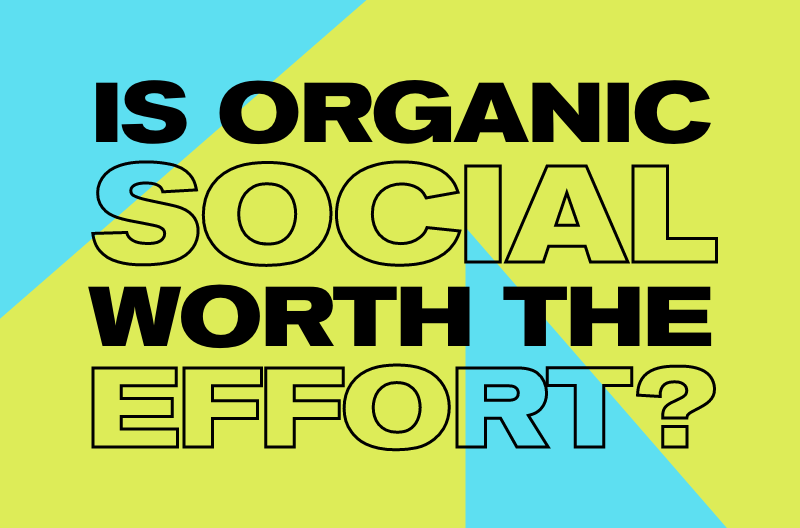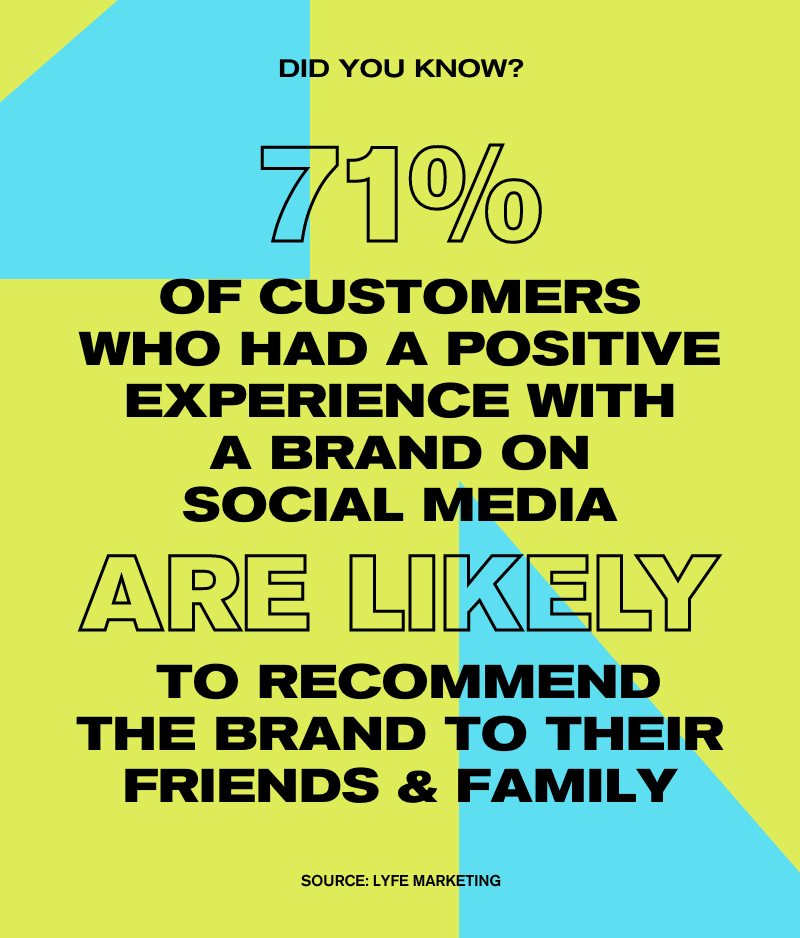24 March 2022
How to plan your marketing strategy like a pro
Read More

The United Kingdom is home to 53 million active social media users.
Roughly, that’s equivalent to 77.9% of the UK’s total population, which puts our tiny island well above the global average of 45%. So, it’s fair to say that everyone you know (and probably their Nan) has at least one active social media profile.
With such a high concentration of potential customers active on social media, why are so many brands and businesses quick to denounce organic social as a valid marketing channel?
Honestly, I wish I knew. And, a quick Google search (and a not-so-quick trawl of the first three pages of results), couldn’t give a good answer, either. I can pull together some of the most commonly asked questions about the value of social media, give you my expert opinion, and hopefully help you come to your own conclusions.
After all, we’re all grown-ups here…
Before we delve into the real nitty-gritty, I thought it would be helpful to break down precisely what organic social media is. According to Hootsuite, organic social refers to…
“The free content (posts, photos, video, memes, Stories, etc.) that all users, including businesses and brands, share with each other on their feeds.”
Simply put, every action you personally take on social media counts as organic social:
As well as every time you take a picture, shoot a video, or share an article from a brand or business account. It’s all organic social! The key thing to remember with organic social is that it probably won’t reach any further than your existing audience (the people you’re friends with, or the users who like your page, or follow your account).
That’s the key difference between organic social and paid social. Organic social aims to reach your existing audience, whereas paid social can target people outside of your organic audience. Seems easy enough, right?
Right! No tricks here.
Now that we’ve covered the basics, it’s time to get into the finer details.
If you’ve found yourself here, you’re more-than-likely to be looking for a definitive answer to this question.
Personally, I think that every brand or business needs a social media presence.
I don’t mean that you need a Facebook Page, Twitter Account, LinkedIn Business Page, Instagram Account, Reddit Account, Pinterest Account, Youtube Channel, AND a TikTok. You need to think about where your audience is likely to be most active, and take it from there. So, if you believe that your audience is made up mostly of men aged between 25-34, then your brand probably needs a Facebook Page.
If your business is looking to connect with other companies, then LinkedIn is where you need to be.
Similarly, if you want to concentrate on producing appealing, visually-led, viral content, then Instagram and TikTok could be the place for you.
Don’t expect your audience to come to you – you need to go where your audience is most prevalent. Besides, imagine trying to maintain eight separate social media accounts? It doesn’t bear thinking about…
Despite social media platforms putting more pressure on brands and businesses to invest in paid social (to “reach” their audiences), it isn’t something you should jump into straight away. Instead, it would be best to concentrate on building some good foundations – with organic social.
Why? I’m glad you asked…
Organic social can help improve the authenticity of your brand to both potential and existing customers. Through your updates on social, you can provide your audience with an authentic look into what defines your brand, and begin building genuine relationships with your audience and customers.

51% of customers will research a business – including their social profiles – before potentially purchasing. So, you want to ensure you’re making a positive impression on any potential customers if they click through to your profile from another source (like a paid social ad, or your website). Customers want to see regular, relevant updates from your brand – to help them make a buying decision.
The good thing about organic social is that it’s free. And – regardless of where you’re at in your journey, or the size of your business – you should never shirk opportunities (especially when they’re free). Ultimately, the key to success on social doesn’t revolve around the amount of money you invest in it.
Creating rich and engaging content that easily resonates with your audience will drive its success – and help you build a strong reputation that lasts.

Hopefully, everything I’ve said so far is a good enough indication of why your brand or business should invest in organic social.
With the average UK user spending 1hr 49min on social media every day, it’s clear that it isn’t just a matter of choosing between different channels. Instead, you should select channels that work strategically for your brand. By integrating organic social with the rest of your marketing strategy, you can look to provide your customers with engaging content, and build long-term relationships.


Still the same great data driven services, but now with a different name